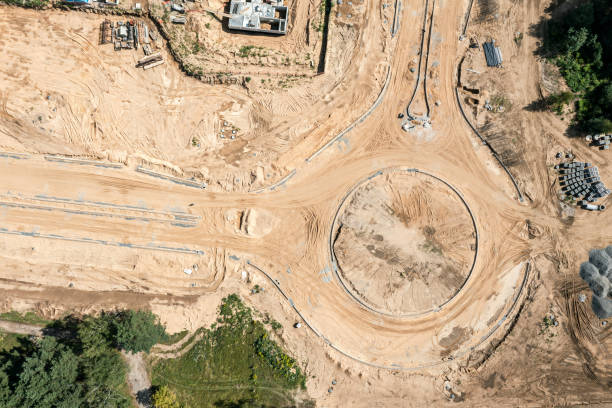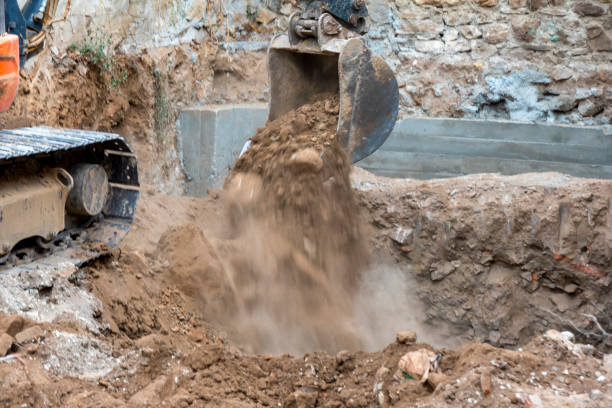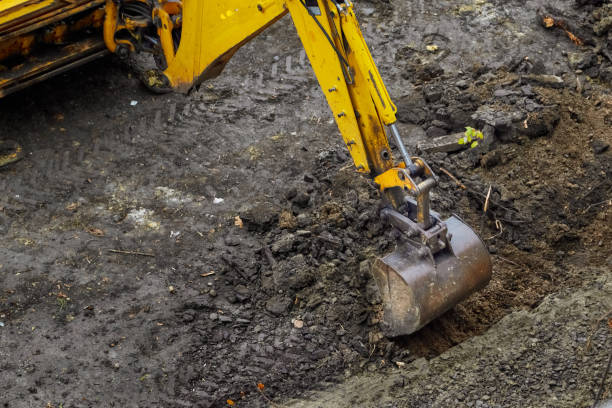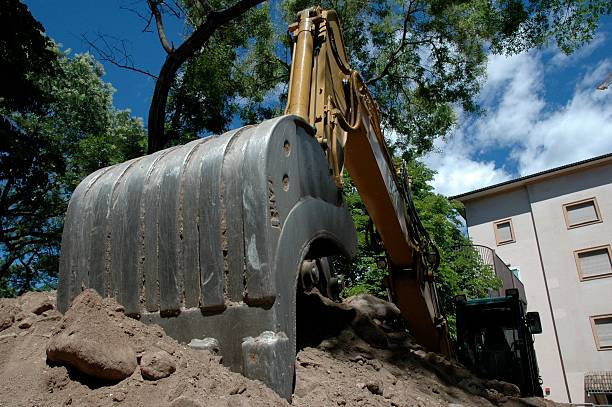In the construction and infrastructure development industry, New Zealand stands as a nation that is constantly evolving and growing. With its stunning landscapes and a commitment to sustainable development, the country witnesses a variety of earthworks projects aimed at enhancing its infrastructure. One critical aspect that often determines the success of these projects is accurate budgeting and earthworks costs in NZ.

What Are the Factors That Affect Earthwork Costs?
This blog delves into the significance of precise budgeting for earthworks projects in New Zealand, exploring the unique challenges and opportunities that the terrain presents. There are a lot of factors that can influence the cost and success of earthworks projects. With that said, here are some aspects of earthworks that need to be considered:
Site Assessment and Geotechnical Investigation
Conduct a thorough site assessment to understand the geological and topographical features. Invest in geotechnical investigations to determine soil conditions, stability, and potential risks. Identify any environmental constraints and regulatory requirements.
Project Scope and Design
To properly canvass earthworks cost in NZ, clearly define the project scope and design specifications. Work closely with engineers and architects to ensure a detailed and accurate project plan. Consider any potential changes in scope and design that may arise during the project.
Quantity and Quality of Materials
Estimate the quantities of materials required for the project, including earthmoving, excavation, and construction materials. Consider the quality of materials needed to meet project specifications and regulatory standards.
Labour Costs and Skilled Workforce
Analyse labour requirements and costs, including skilled and unskilled labour. Consider the availability of skilled workers in the local market. Account for potential labour shortages or skill gaps that may affect costs. Consider earth works companies in NZ and their costs.
Equipment and Technology
Assess the need for heavy machinery, tools, and equipment. Consider technology integration for efficiency, such as GPS-guided equipment and 3D modelling. Evaluate the costs of purchasing, leasing, or renting equipment.
Weather Conditions and Seasonal Variations
Account for weather conditions that may impact project timelines. Plan for seasonal variations and potential disruptions caused by adverse weather. Implement contingency plans for weather-related delays.
Regulatory Compliance and Permits
Understand and comply with local, regional, and national regulations. Budget for necessary permits, environmental impact assessments, and compliance measures. Include costs associated with legal and regulatory compliance.
Risk Management
Identify and assess potential risks and uncertainties associated with the project. Develop a risk management plan to mitigate and respond to unforeseen challenges. Allocate a contingency fund for unexpected events or changes in project conditions. Most earth works companies in NZ have such plans in place.
Community and Stakeholder Engagement
Plan for community engagement activities and potential compensation for affected parties. Consider costs associated with addressing community concerns and maintaining positive stakeholder relationships.
Inflation and Economic Factors
Factor in inflation rates and economic fluctuations that may affect material and labour costs. Monitor currency exchange rates if dealing with international suppliers or contractors.
Innovation and Sustainable Practices
Explore innovative technologies that can enhance project efficiency and reduce costs. Incorporate sustainable practices and materials that align with environmental goals.
Project Management and Administration
Allocate funds for project management and administrative expenses. Include costs associated with project monitoring, reporting, and documentation.
Accurate budgeting of earthwork costs in NZ involves a holistic approach that considers these interconnected aspects. By meticulously analysing and incorporating these factors into the budgeting process, project managers can enhance the likelihood of project success while minimising the risk of cost overruns and delays.
Aside from legal factors, there are also the matter of terrain aspects that need to be considered when budgeting your earthworks costs.

The Landscape Challenge
New Zealand’s diverse topography, characterised by mountains, hills, plains, and coastal areas, poses a unique set of challenges for earthworks projects. Accurate budgeting becomes difficult due to the varying soil types, weather conditions, and seismic activity that can significantly impact the scope and cost of these projects. A thorough understanding of the geological and environmental factors is essential for crafting budgets that can withstand unforeseen challenges. It’s important to keep your landscape in mind when calculating your earthworks costs in NZ.
Environmental Compliance
New Zealand, with its strong commitment to environmental sustainability, imposes stringent regulations on construction projects, including earthworks. Accurate budgeting ensures that projects comply with environmental standards, preventing costly delays and penalties. As the nation focuses on minimising its ecological footprint, budgets must account for eco-friendly practices and materials, adding an additional layer of complexity to the financial planning process.
Community Engagement and Stakeholder Management
Community engagement is a vital aspect of earthworks projects in New Zealand, where local communities often have a strong say in development activities. Budgets need to account for community consultation, compensation, and other measures to address concerns and maintain positive relationships. By gauging the proper earthwork costs in NZ for these aspects, you can guarantee an efficient budget for your project.
In the dynamic realm of earthworks projects in New Zealand, accurate budgeting emerges as a linchpin for success. The nation’s diverse topography, stringent environmental regulations, variable weather conditions, and unique geological challenges demand a meticulous financial planning approach.
By embracing accurate budgeting practices, project managers can navigate the complexities, mitigate risks, and contribute to the sustainable development of New Zealand’s infrastructure, ensuring that each earthworks project stands as a testament to precision, innovation, and responsible construction practices.

Safetrak Northland: The Leading Earthworks Company in NZ
Among the earthwork companies in New Zealand, Safetrak Northland offers services that is guaranteed safe, efficient and high-quality.
With a fleet of well-maintained trucks, knowledgeable drivers, and a dedication to environmental stewardship and safety, Safetrak Northland is a reliable choice with services that include earthworks, street sweeping, traffic management and more.
Over the years, we’ve worked with a variety of clients and customers. It illustrates the excellent quality of our offerings. Our traffic management team can assist with all facets of traffic control and management. We cover a large region of New Zealand, from Cape Reinga to Whangarei.
Ensure the accuracy of your earthworks budget with our consultation. Contact us +64 080072338725 or message us admin@safetraknorthland.co.nz today and plan your budget!

